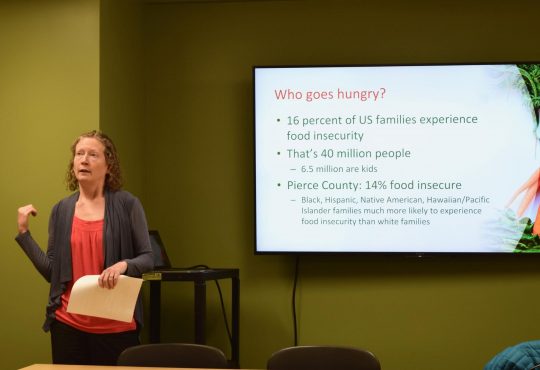College students, especially nearing the middle and end of the semester, tend to complain about too little sleep leaving them sluggish and in desperate need of caffeine to revitalize them.
Not having enough sleep can lead to inefficient time management, which can lead to more stress and more sleep loss, creating a destructive cycle.
Unfortunately, it gets worse—studies by the National Sleep Foundation show that junk food, which can comfort stressed students at their lowest moments, cause students to sleep less restfully when they finally put their heads down.
Last year US News quoted a study that showed the best foods to support restful sleep and improve stamina while awake to avoid stress.
Spinach, fish, nuts and grains are all full of magnesium, which promotes muscle relaxation and may help reduce middle-of-the-night restlessness. This will cause you to wake up less in the middle of the night and improve the overall restfulness of your sleep.
Foods that have melatonin or tryptophan will cause deeper sleep cycles and an easier waking-up period. Cherries and warm milk feature prominently on lists that suggest these therapeutic chemicals; fish and poultry are also encouraged, but doctors suggest eating a high-carbohydrate snack afterward to aid the body in using the tryptophan efficiently.
Poultry and fish are good foods to promote sleep because they are high in protein and low in fat content.
High fat content foods can make you feel sluggish and less alert, but they will not improve rest, and will sometimes completely prevent you from falling asleep until hours after you lay down.
Similarly, sleep aids may cause you to fall asleep quickly initially, but many of them will disrupt your brain’s sleep cycles, seriously reducing the effectiveness of a long night’s sleep.
Along with healthy eating, there are also simple tasks you can perform to encourage your body to rest more easily at night.
Many college students have found the remarkable power of naps far more appealing than they did when they were in preschool; however, sleep studies show that frequent irresponsible napping during the day will prevent a person from being able to stabilize their sleep schedules, forcing them into a constant state of ill rest.
Frequent exercise and exposure to sunlight will promote better rest at night, but exercising right before sleep is not as good as you might imagine: fitness and nutrition experts encourage a full hour between exercising and sleep, as hard work will cause your mind to race and will make your muscles tense and restless, not tired.
Apart from reducing stress in the short term, improving your grades and relationships and general quality of life, healthy sleeping habits now will have long term pay-offs as well.
Studies show that students who got enough sleep while they were in college fought off brain degenerating diseases such as Alzheimer’s far better than their colleagues who found themselves with less than optimal rest schedules.





